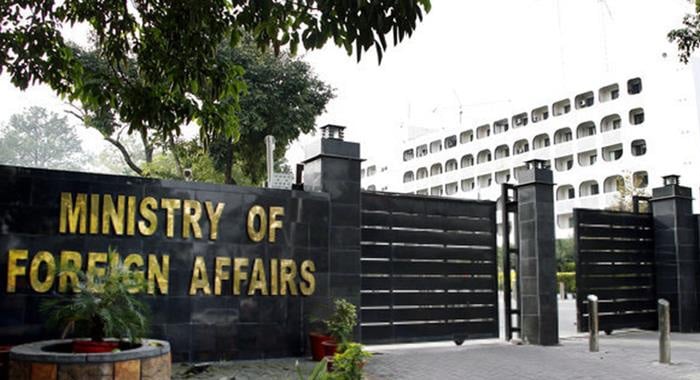Pakistan has categorically responded to India’s recent communications regarding the Indus Waters Treaty, reaffirming that the agreement remains fully binding and rejecting any notion of its unilateral suspension. The Foreign Office declared that Pakistan would not tolerate violations of international agreements and would assert its sovereign rights through all diplomatic and strategic means available.
Foreign Office Spokesperson Shafqat Ali Khan stated during the weekly briefing that Pakistan has formally responded to India’s letters on the Indus Waters Treaty. “The Treaty remains fully in force. It is a binding international obligation and cannot be suspended or altered unilaterally,” he said. “Pakistan has made it unequivocally clear that any violation of the Treaty is unacceptable and will be treated as a breach of international law.”
He further stated that Pakistan would continue to raise the issue at every international forum and vigorously defend its rights under the Treaty. “We will not allow India to weaponize water or undermine our legitimate entitlements. The Indus Waters Treaty is not just a bilateral agreement—it is a global commitment underpinned by international law,” he asserted.
Backing Pakistan’s stance, the President of the World Bank also confirmed that the Treaty cannot be suspended unilaterally. It can only be amended or terminated through mutual consent, further invalidating India’s claims.
Tensions escalated sharply after the April 22 Pahalgam incident, which India used to level baseless accusations against Pakistan. In a provocative move, India declared a suspension of the Treaty, curtailed the functioning of Pakistani diplomats, and revoked visas of all Pakistanis—including children receiving medical treatment—forcing them to return home.
Pakistan responded decisively, terming India’s unlawful actions an open act of aggression. Islamabad restricted the movement of Indian diplomats, cancelled all Indian visas except for Sikh pilgrims, suspended all trade relations, and sealed its airspace to Indian flights.
The situation took a grave turn on the night of February 6-7, when India launched missile strikes on Kotli, Bahawalpur, Muridke, Bagh, and Muzaffarabad, killing 26 civilians and injuring 46. In a swift and calibrated response, Pakistan’s air defence systems brought down five Indian warplanes, including three Rafale jets.
On the night of February 10, India struck Pakistani airbases using drones and missiles. At dawn, Pakistan launched a meticulously executed counter-operation—Operation Bunyān Marsūs (Iron Wall)—neutralizing key Indian military installations including Udhampur, Pathankot, and Adampur airbases, BrahMos missile storage sites, and components of the S-400 air defence system.
Pakistan’s response demonstrated not only its military preparedness but also its strategic restraint. Islamabad reiterated that while it desires peace, it will not hesitate to defend its sovereignty and honour international agreements. “Pakistan will never bow to pressure or provocation. We stand firm—politically, diplomatically, and militarily,” the spokesperson concluded.
Pakistan has once again shown that any aggression or breach of international norms will be met with unwavering resolve and national unity.





